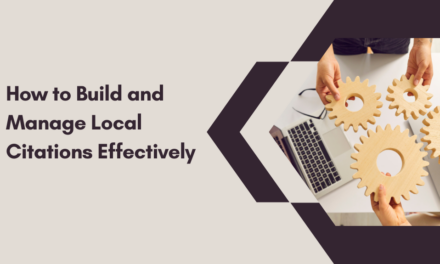E-A-T SEO, which is short for Expertise, Authoritativeness, and Trustworthiness, is a fundamental principle utilized by Google to assess the quality of content and the reliability of websites. These elements are essential in guaranteeing that users are provided with dependable, precise, and knowledgeable information. Expertise is about the knowledge and skill of the content creator, whereas Authoritativeness relates to the level of respect and reputation of the content or site within its field. Credibility of both the content and the website itself is what trustworthiness encompasses.
YMYL, also known as “Your Money or Your Life,” pertains to information that has the potential to greatly affect a user’s health, finances, or general welfare. Instances of medical advice, legal guidance, and financial information are some examples. Because YMYL subjects can have a significant impact on individuals’ lives, Google prioritizes ensuring that this content adheres to stringent E-A-T criteria. If a YMYL page does not have expertise or seems untrustworthy, it may receive a low ranking and damage the site’s reputation.
Both E-A-T and YMYL are integral to search engine rankings because they help Google surface the most reliable content. For YMYL pages, in particular, demonstrating authoritativeness and trustworthiness is essential for high rankings. If users trust the information provided, they are more likely to engage with it, share it, and return for more.
Why E-A-T Matters for Online Content
E-A-T (Expertise, Authoritativeness, and Trustworthiness) is critical for online content, especially in today’s SEO landscape. Google’s primary goal is to provide users with accurate and reliable information, particularly for topics that directly impact their well-being, such as healthcare, finance, and legal advice—commonly known as YMYL (Your Money or Your Life) pages. These topics demand high levels of expertise and authority because the stakes are high, and misinformation can have severe consequences.
Having expertise is crucial for establishing credibility. Content written or evaluated by qualified professionals is more likely to gain trust from both users and search engines. For example, a medical website needs articles authored by healthcare professionals to build trust. This assists Google in recognizing the content as coming from an expert source, thus improving its potential for ranking.
Google prioritizes reliable information in order to protect users. In a world where false information can rapidly spread, particularly on important YMYL subjects, Google’s algorithms favor websites that are open and trustworthy. This involves providing transparent details on the authors, supporting assertions with trustworthy sources, and guaranteeing that information is precise and frequently refreshed.
Industries such as healthcare, finance, and legal services are prime examples where E-A-T is especially important. Websites in these fields must consistently demonstrate a high level of expertise and authority to rank well and retain user trust. For these industries, Google uses E-A-T to assess content quality and ensure users are getting safe, reliable information.
By improving E-A-T elements in content, businesses not only enhance their SEO performance but also build long-term trust with their audience. This approach fosters higher engagement and more meaningful connections with users.

Understanding YMYL: Content That Impacts Lives
YMYL refers to content that can significantly affect a person’s well-being, including their health, financial stability, or safety. Google places special emphasis on these types of pages because inaccurate or misleading information in YMYL categories can cause serious harm. As a result, YMYL content is held to a much higher standard in terms of E-A-T SEO.
What qualifies as YMYL content?: YMYL content includes topics that can directly influence important aspects of users’ lives. These range from financial advice (e.g., tax information, investment tips) to medical content (e.g., disease management, health advice). Other YMYL topics cover legal guidance, safety information (e.g., cybersecurity), and news that can affect public welfare.
Examples of YMYL topics: YMYL pages consist of health articles on conditions and treatments, financial planning resources, and legal advice websites. An example would be a webpage giving medical tips for controlling diabetes or clarifying intricate legal agreements, which would be labeled as YMYL because of the potential effects on people’s health and financial choices.
Risks of low-quality YMYL content: Low-quality YMYL content can pose serious risks. Inaccurate financial advice may lead to poor investment decisions or financial loss, while misleading medical information could result in harmful health choices. For businesses, failing to meet Google’s high standards for YMYL pages can lead to lower rankings and loss of user trust, directly affecting their reputation and bottom line. Hence, maintaining content trustworthiness and authoritativeness is critical.
Building Trust in YMYL Content
To establish trust in YMYL content, it’s essential to prioritize both expertise and authority. YMYL pages deal with topics like health, finance, and legal advice—areas where inaccuracies can have significant consequences for users. Therefore, demonstrating expertise and authoritativeness in these fields is crucial for both user trust and search engine rankings.
How to demonstrate expertise and authority: Highlighting the qualifications of the content creator is crucial for YMYL content. This entails verifying that articles are authored by experts who are well-respected in the specific field. For instance, a health article needs to be written or evaluated by a certified medical expert. Moreover, providing in-depth author biographies and referencing their professional credentials strengthens the credibility of the material. Consistently updating information to ensure it remains up-to-date and accurate is crucial in upholding trust.
Importance of sourcing credible references: Citing reliable sources is another critical aspect of building content trustworthiness. Using peer-reviewed journals, government publications, or expert opinions not only improves the credibility of your content but also signals to search engines that your website values accuracy and reliability. Linking to authoritative external sources can further boost the perceived authority of your YMYL pages.
Optimizing for E-A-T: Best Practices
Optimizing content for E-A-T is essential for improving SEO, especially for YMYL pages. High-quality content that demonstrates expertise and trustworthiness helps build authority in search engine rankings and fosters user trust.
How to create authoritative content that ranks well: Make sure your content is thorough, accurate, and pertinent in order to establish credibility. Concentrate on providing value to your audience by addressing their needs comprehensively. Integrating expertise is crucial. Articles must be authored or evaluated by experts with established knowledge, and the material should reference reputable sources like scholarly articles or official government websites.
Tips for showcasing expertise: Displaying author credentials is crucial for E-A-T SEO. Including detailed author bios with professional qualifications and experience can enhance content trustworthiness. Backlinks from credible, authoritative websites also play a significant role in boosting your content’s authority. Earning links from reputable industry sites signals to search engines that your content is trustworthy and of high quality. Regularly updating content to keep it accurate and relevant also supports better rankings.
Role of reputation management in boosting trust: Reputation management is vital for reinforcing the trustworthiness of your website. Maintaining positive user reviews and gaining endorsements from experts in your industry help solidify your authority. Monitoring and addressing negative feedback promptly can improve your online reputation, which is key to long-term success in both SEO and user engagement.

Overcoming Challenges in Building E-A-T
Building strong E-A-T can be challenging, especially for YMYL pages where stakes are high. Understanding the common pitfalls and strategies to overcome them is essential for success.
Common pitfalls and mistakes: One common mistake is not clearly demonstrating the credentials of content creators. Failing to highlight author expertise or provide transparent information about the website can hurt both content trustworthiness and SEO performance. Another pitfall is neglecting to regularly update content, particularly in fast-evolving fields like health or finance, which can lead to outdated and inaccurate information that undermines authority.
Addressing misinformation and disinformation concerns: Actively fighting against disinformation online is crucial for upholding E-A-T amidst the spread of false information. This involves thoroughly verifying information before posting and including reliable sources to back up assertions. Websites must ensure that their content is reliable and supported by reputable sources in order to avoid the dissemination of false information, particularly in the case of YMYL subjects where user confidence is crucial.
Strategies for maintaining E-A-T in fast-changing industries: In rapidly evolving industries, maintaining E-A-T requires a commitment to constant updates. Regularly revisiting and revising published content ensures it stays relevant and trustworthy. Additionally, partnering with industry experts and keeping up with the latest research can help ensure content remains authoritative. By being proactive in content management and monitoring industry trends, businesses can sustain high E-A-T standards over time.
Conclusion: Future Trends in E-A-T and YMYL
As content strategy develops, E-A-T will remain essential in building credibility. YMYL content can expect increased scrutiny focused on transparency and trustworthiness. In order to remain competitive, companies need to regularly refresh content, focus on knowledge, and proactively handle their online reputation to uphold credibility and user confidence.












